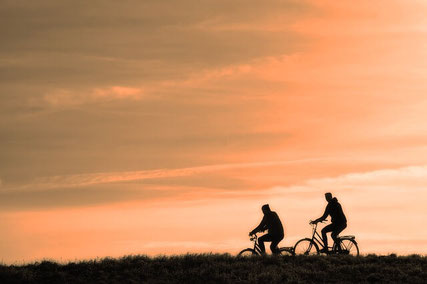
In last week's Southern Star, I wrote about the mental health benefits of exercise. The piece is reproduced below.
The physical benefits of exercise are well known, but keeping active is also vital for maintaining mental fitness and well-being.
When your body feels better, so does your mind. Exercise release natural endorphins which can significantly boost mood, combating feelings of fatigue and helping people feel energised and healthy. Consequently, it’s one of the quickest ways of relieving stress. Physical activity can build feelings of competence and improve self-esteem. It helps people to sleep better. It can also boost your brainpower, enhancing concentration levels and improving alertness. In fact, these cognitive benefits can be extensive and long-lasting. One recent study, for example, found that young people who run or take part in aerobic activity maintain their thinking and memory skills for middle age, while another study found physically active middle-aged people are at reduced risk of dementia in older age.
Importantly, research increasingly suggests exercise can play a role in treating depression. Active people are less likely to be depressed. Exercise reduces the risk of developing depression in the future. And while exercise might seem like the last thing you want to do if you are depressed, it’s important to remember that exercise has been shown to help ease depressive symptoms.
ANXIETY AND EXERCISE
As little as five minutes of exercise can stimulate anti-anxiety effects. Unfortunately, highly-anxious people often avoid vigorous exercise because it can bring on short-term discomfort. Physical exertion can cause the stress hormone cortisol to rise. Anxious people prone to panic attacks are extremely attuned to any increase in stress hormones and nervous system arousal. Automatically, the anxious brain misinterprets these changes as dangerous, leading to increased arousal which can escalate into a panic attack. As a result, panic-prone people often decide to “play it safe” and avoid the gym or physical sports.
However, while panic attacks can be very unpleasant and scary, they are not harmful. The threat is not real. You might feel like you’re going to get a heart attack, but you’re not. Accordingly, the best way of responding to panic is to stand your ground and tolerate the discomfort. If you do so, you will see your anxiety will peak and then subside. The feeling of panic will pass. That’s why exposure therapy – gradually exposing yourself to feared situations – is central to the treatment of anxiety.
The side effects of exercise – sweating, rapid heart rate, rapid breathing – mimic the physical symptoms of panic. In this sense, exercise can be a form of exposure therapy. Gila Lyons, an American journalist who has written about her experience of anxiety and panic attacks, writes that exercise helped teach her that she “needed to learn to withstand the messages of terror and dread” that her body produced. “I needed to learn that the quaking of my body was a normal and expected outcome of exercise, not a sign of impending heart attack or mental collapse”. By exposing oneself to feared physiological symptoms while exercising, the anxiety-sensitive person increases their tolerance for such symptoms.
DON'T EXERCISE FOR WRONG REASONS
Exercise can be great, but not if you exercise for the wrong reasons. If you don’t have a healthy relationship with exercise, it may end up exacerbating existing mental health difficulties. Don’t take up exercise because you’re obsessing over your body image. Be aware that excessive exercise is a common symptom of eating disorders, with people carefully measuring how many calories they burned against how many they consumed. Exercising should bring on feelings of well-being, but some people beat themselves up for not doing more.
Signs and symptoms to look out for include exercising primarily for the purposes of shape and weight; feeling compelled to exercise; continuing to exercise despite injury or illness; allowing exercise to interfere with work or socialising; and feelings of stress or guilt when unable to exercise.